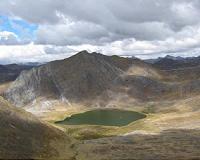| . |  |
. |
Tehran (AFP) May 12, 2011 The level of industrial and oil pollution in the Caspian Sea has reached a "critical condition," an Iranian ecological expert warned, quoted by local media on Thursday. "In terms of pollution, the Caspian Sea is in critical condition," Reza Pourgholam, head of the Caspian Sea Ecological Research Institute, told Fars news agency. Exploitation of oil fields and traffic of large oil tankers dumps 122,350 tonnes of potentially cancerous oil pollutants into the world's largest inland sea annually, Pourgholam said. The sea is also poisoned by large quantities of heavy metal just as dangerous as the hydrocarbons, he said, adding that "304 tonnes of cadmium and 34 tonnes of lead pollute the sea every year." Pourgholam claimed 95 percent of the pollution originates from the sea's littoral states in the north and northwest -- Russia, Kazakhstan and Azerbaijan, home to a major offshore oil industry. The Islamic republic is only responsible for five percent of the pollution, by dumping agricultural waste such as fertiliser and pesticides as well as detergents into the sea, Pourgholam said. According to him, agricultural pollutants dumped into the sea in the Iranian province of Mazandaran, situated in the southeast of the Caspian Sea, fell from 10,000 tonnes to 4,000 annually over the past decade after Iran took measures to lower its pollution of the sea. The treatment of the Caspian Sea's environmental problems is among the issues on which the bordering countries have yet to reach agreement. Other issues still outstanding include the legal status of the sea and the delimitation of territorial waters after the breakup of the Soviet Union in 1991. The issue has been delaying the signing of an international convention on the Caspian Sea in preparation for years, to govern the cooperation of riparian states in all fields.
Share This Article With Planet Earth
Related Links Water News - Science, Technology and Politics
 Climate Record Suggesting Severe Tropical Droughts as Northern Temperatures Rise
Climate Record Suggesting Severe Tropical Droughts as Northern Temperatures RisePittsburgh PA (SPX) May 12, 2011 A 2,300-year climate record University of Pittsburgh researchers recovered from an Andes Mountains lake reveals that as temperatures in the Northern Hemisphere rise, the planet's densely populated tropical regions will most likely experience severe water shortages as the crucial summer monsoons become drier. The Pitt team found that equatorial regions of South America already are receiving less ... read more |
|
| The content herein, unless otherwise known to be public domain, are Copyright 1995-2010 - SpaceDaily. AFP and UPI Wire Stories are copyright Agence France-Presse and United Press International. ESA Portal Reports are copyright European Space Agency. All NASA sourced material is public domain. Additional copyrights may apply in whole or part to other bona fide parties. Advertising does not imply endorsement,agreement or approval of any opinions, statements or information provided by SpaceDaily on any Web page published or hosted by SpaceDaily. Privacy Statement |